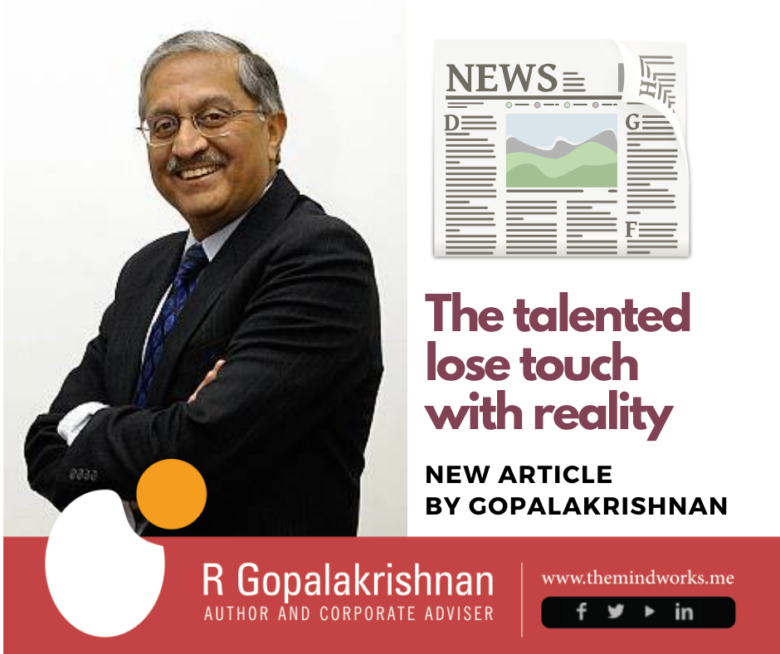3rd September 2015, BUSINESS STANDARD
If your child’s life could be saved, or if your family could avert hunger, would you oppose experiments in genetic science?
Innovation requires experimenting. Opposition to trials aborts ideas inside the innovation womb. History shows that innovations have faced naysayers, but persistent scientists managed to demonstrate benefits; thus naysayers were either persuaded or overcome.
Genetic science is highly emotional, particularly with respect to genetically modified organisms (GMO). In February 2015, a British parliamentarians’ group produced a balanced report on the scientific evidence, precautionary principle, role of non-governmental organisations and public engagement on the subject. As if to muffle the voice of the report, the Scottish government promptly banned all GMOs. GMO has improved India’s cotton productivity by 60 per cent over the last 15 years, thus making the country the world’s largest cotton producer. India’s neighbour, Bangladesh, is reported to be achieving breakthroughs by growing Bt brinjal.
Opposition exists against gene-level trials for human health. The Economist reports about a clustered regularly interspaced short palindromic repeat (CRISPR) technology by which a defect in a human genome can be ‘snipped with scissors’ (molecular ones) and the gap filled with genetic material derived from bacteria. If successful, this technique could provide remedies for many human diseases. But moralists and ethicists are up in arms.
Citizens need exceptional common sense to deal with such issues. Recalling that we Homo sapiens evolved through cross-species tinkering helps, according to an anthropologist (Sapiens: A Brief History of Humankind by Yuval Noah Harari). Derived from the genus of apes, several Homo species evolved two million years ago and, to quote Harari, “acquired pompous titles like neanderthalensis, erectus, soloensis and rudolfensis”. These Homo species mated with each other as evidenced through modern DNA data.
Genetic modification is the insertion of DNA from one species into another. According to Dr C V Natraj, a former Unilever senior scientist, “An organism is a GMO when a gene is introduced asexually into another.” Thus Homo sapiens (which, incidentally, means the wise ones) can be regarded as being genetically modified, because cross-species breeding has been a part of our natural evolution. Surely we are not unnatural creatures, are we?
Bt Brinjal and Bt cotton are both created by inserting a naturally occurring gene (not artificially synthesised) from soil bacteria into the plant genome. Our genome mysteriously contains 40 genes from bacteria. Yet cross-species interjection is viewed suspiciously by GM opponents for all sorts of hysterically-expressed reasons. Dr Natraj postulates another mystery: “Our human body contains billions of small bacteria-like organelles called mitochondria, whose DNA behaves quite independently of our host DNA. In fact, we humans harbour more bacteria cells than human cells.
The message is that insertion of foreign organisms is not harmful per se; it is nature’s way. Citizen referendums to discuss science are bizarre. Highly technical advances should be guided by scientific protocols rather than political processes. Innovative science can potentially benefit many more people compared to the few opponents. If your child’s life could be saved, or if your family could avert hunger, would you oppose experiments?
Incidentally from an animal point of view, the Homo sapiens species is very harmful. They exterminated other species and learnt to dominate the earth. According to Harari, human brains learned to plan alternative actions and the art of collaboration by creating stories and myths – a skill that animals do not possess. These created a cognitive revolution, followed by the agricultural revolution from the perspective of Homo sapiens, but a disaster for other species.
Gujarat’s philosopher and guide Sanat Mehta died recently. Noted economist and former Union minister Y K Alagh eulogised Mehta’s response (Indian Express, August 22, 2015) after an old woman told him, “Saheb, deem joiyey (Sir, I want a dam).” “Sanatbhai’s crowning glory was Sardar Sarovar… We fought in Delhi, in Gujarat… in Rio and Washington. And we won. The water flows down the Palanpur Branch as I write this in a dry year,” writes Alagh.
India needs a Sanat Mehta for GMO -not to advocate blind adoption, but to allow scientists to conduct rationally-designed field experiments. The world has major issues relating to food for billions of people and remedies to alleviate disease. As the Rig Veda states, “Bahujana sukhaya bahujana hitaya cha (for the happiness and welfare of many).”

